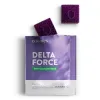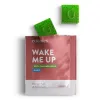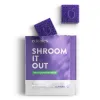In the quest for a good night's sleep or relaxation after a long day, many people turn to various remedies. Two common choices are melatonin supplements and alcohol. While both have the potential to impact one's state of rest and relaxation, the combination of melatonin and alcohol is a practice that warrants close scrutiny.
The synergy between these two substances is often chosen in the hope of enhancing the sedative effects of both, making it easier to unwind and fall asleep. However, beneath the surface lies a complex interplay of biochemical reactions that can have unintended and potentially harmful consequences.
Understanding the dangers of combining melatonin and alcohol is essential for those who’ve incorporated both substances into their routines, and while a beer every now and then a little melatonin to help you doze off quicker are alright, combining them isn't. Wondering why? Let’s find out.
Melatonin: The Natural Sleep Hormone
Melatonin is a naturally occurring hormone produced by the pineal gland, a tiny structure located in the brain. This remarkable hormone plays a crucial role in regulating our sleep-wake cycles, helping to synchronize our internal body clock with the natural day-night cycle.
Melatonin serves as the body's internal timekeeper, signaling when it's time to sleep and when it's time to wake up. As the sun sets and darkness falls, the pineal gland is stimulated to release melatonin, which then makes us feel drowsy and prepares our body for rest. It is a fundamental component of the body's sleep regulatory system, ensuring that we get the rest we need.
Melatonin Products: Supplementing Your Sleep
For those who struggle with sleep-related problems, melatonin products have become a readily accessible option. These supplements are available over the counter in various forms, including pills, capsules, and even gummies.
They are often marketed as a natural and non-prescription solution to insomnia or difficulties falling asleep. The appeal of these supplements, such as melatonin gummies, lies in their potential to help people fall asleep faster and regulate their sleep patterns, particularly when disrupted by factors like jet lag or shift work.
However, it's crucial to understand that while melatonin is indeed a natural hormone, taking it in supplement form is not always without risks or side effects. Furthermore, when combined with alcohol, the consequences can become even more complex.
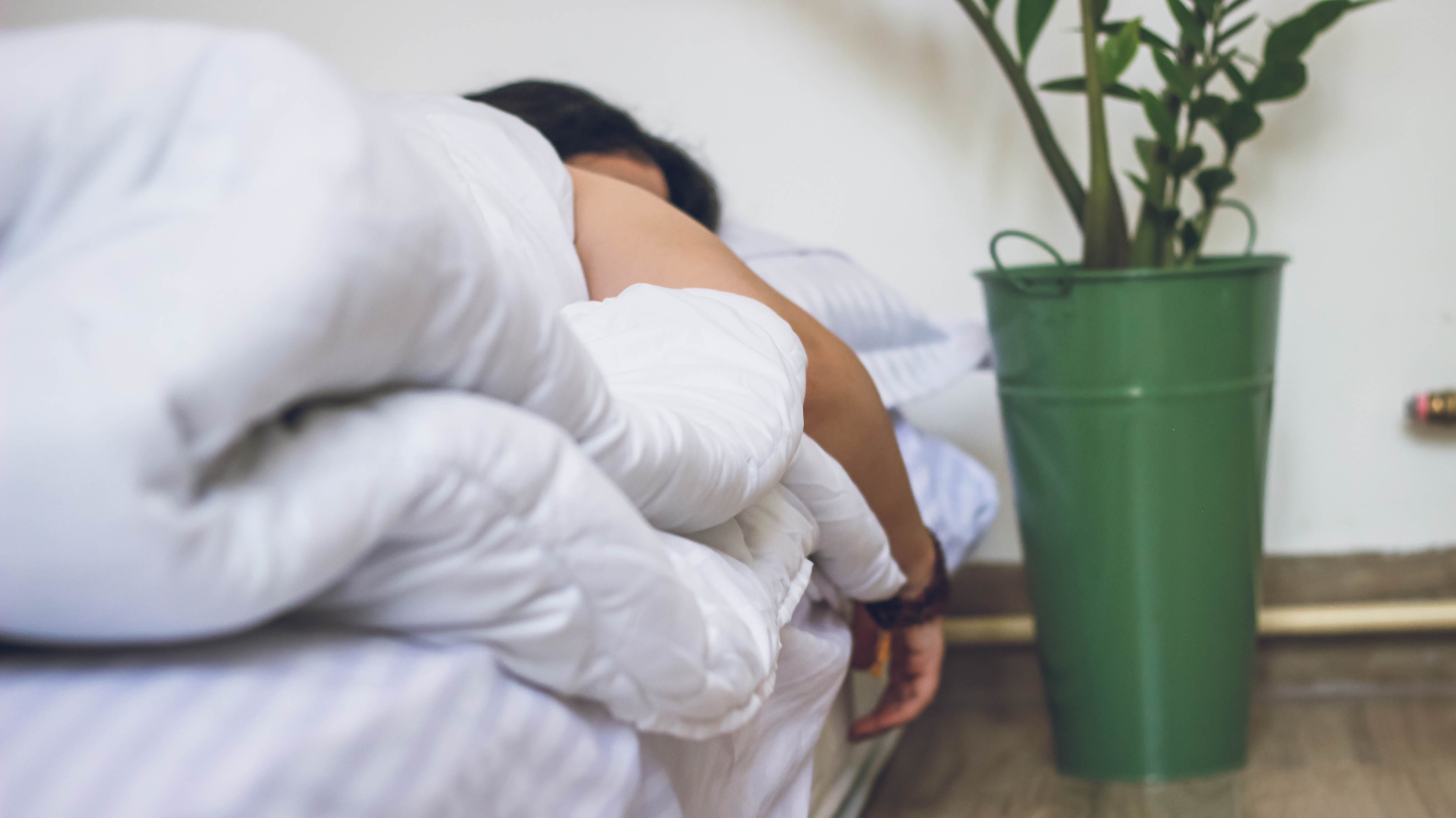
Alcohol's Impact on Sleep
Alcohol, a substance commonly used for its sedative properties, can have a profound influence on sleep, but due to its harmful nature when used in excess, it’s not recommended as a regular sleep aid. While it may initially induce feelings of relaxation and drowsiness, the relationship between alcohol and sleep is more intricate than it appears.
In the initial stages of alcohol consumption, its sedative properties can indeed make falling asleep seem easier. It may create a sensation of drowsiness and relaxation that leads individuals to believe it is a suitable sleep aid. However, this initial sedation is only part of the story.
As the night progresses, alcohol's impact on sleep undergoes a shift. It can disrupt the sleep cycle, causing fragmented and lighter sleep, and an increase in the number of awakenings during the night. This disruption can significantly impair the overall quality of sleep, leading to feelings of grogginess and fatigue the next day.
For individuals with sleep disorders, such as sleep apnea, the negative consequences of alcohol on sleep quality are even more pronounced. Alcohol relaxes the muscles in the throat, which can worsen the symptoms of sleep apnea.
It also leads to increased instances of breathing interruptions and decreased oxygen levels, causing the individual to wake up more frequently during the night.
Incorporating alcohol into your sleep routine, particularly in combination with other substances like melatonin, can compound the risks and consequences. Therefore, it is vital to understand the complexities of alcohol's interaction with sleep before considering its use as a sleep aid, especially when mixed with other substances like melatonin.
The Risks of Mixing Melatonin and Alcohol
The combination of melatonin and alcohol is an area of interest and concern, yet it remains relatively under-researched. Here, we'll delve into the limited scientific inquiry regarding the combined effects of these two substances and the reasons why experts advise against their simultaneous use.
Research examining the interactions and potential consequences of combining melatonin and alcohol is scarce. Most studies are primarily focused on each substance individually rather than their collective effects.
As a result, the specific risks and safety of mixing melatonin and alcohol remain relatively uncharted territory. This lack of comprehensive research underscores the importance of exercising caution when considering this combination, given the uncertainties surrounding it.
Why is Combining Melatonin and Alcohol Discouraged?
Both melatonin and alcohol have sedative properties, and when taken separately, they can influence one's state of relaxation and sleep. However, their combined effects on the body are not simply additive. Instead, they interact in complex ways, potentially intensifying the sedative properties of each other.
This interaction can lead to excessive sedation, causing users to feel excessively drowsy, disoriented, or even experience a hangover-like effect the next day.

When is Melatonin Most Effective?
When using melatonin as a sleep aid, timing is crucial for reaping its full benefits. Melatonin should ideally be taken at a specific time to help regulate and align the body's circadian rhythms with the desired sleep schedule. Ideally, you should take your melatonin supplements 30 minutes to an hour before bed.
When combined with alcohol, the timing can be disrupted, making it challenging to achieve the desired sleep-regulating effects of melatonin. To optimize the benefits of melatonin, it's essential to consider the potential interference alcohol may introduce to your sleep routine.
The potential risks and uncertainties surrounding this practice underline the need for caution and informed decision-making when it comes to your sleep and relaxation habits.
The Timing Dilemma
The timing of melatonin intake is of paramount importance when seeking to optimize its effects on sleep and circadian rhythms. The interplay between melatonin and alcohol introduces a timing dilemma that can disrupt these essential processes.
Melatonin, often referred to as the "hormone of darkness," plays a pivotal role in regulating our internal body clock. To effectively align the circadian rhythms with desired sleep schedules, it is crucial to take melatonin consistently at the same time each day.
This consistency helps signal the body when it's time to sleep and when it's time to wake up, enhancing the synchronization of the body's natural sleep-wake cycle.
How Alcohol Disrupts Sleep Patterns
Alcohol consumption can disrupt the body's circadian rhythms, particularly when it is consumed close to bedtime. While it may initially induce drowsiness, the resulting sleep is often fragmented and lighter.
The impact of alcohol on sleep patterns can lead to irregular sleep, where individuals may experience difficulties falling asleep and wake up more frequently during the night. This inconsistency can hinder the ability to achieve the deep, restorative sleep that is essential for overall well-being.
When contemplating the use of melatonin, careful timing is crucial to minimize potential disruptions to sleep and circadian rhythms. If melatonin is taken, it should be administered at the same time each day to reinforce the body's sleep-wake cycle.

Choosing Melatonin Supplements Wisely
Selecting melatonin supplements is a decision that should not be taken lightly. The lack of regulation in the supplement industry and potential variability in product quality demand a careful and informed approach.
Here are some tips to help you pick your melatonin supplements wisely:
Consulting Healthcare Professionals
Before embarking on a melatonin supplement regimen, it is advisable to consult with a healthcare professional. They can provide personalized guidance, assess your specific sleep-related issues, and help determine whether melatonin is an appropriate option for you.
This step is essential, especially if you have underlying medical conditions or take medications that may interact with melatonin.
Verify the Legitimacy of Your Products
The supplement industry, including melatonin products, is not as rigorously regulated as pharmaceuticals. This means that the quality and safety of melatonin supplements can vary widely between brands.
It's crucial to choose reputable and trusted manufacturers to ensure you are getting a product that meets high standards. Be wary of unverified, generic, or low-quality options, as they may not deliver the intended effects.
To aid in the selection of high-quality melatonin supplements, look for products that have undergone third-party testing and carry verification marks. These marks indicate that the product has met certain quality and safety standards.
Such supplements are more likely to be reliable and free from contaminants, providing you with a safer and more effective choice.
In a landscape where the safety and efficacy of supplements can vary significantly, these steps will help ensure that your melatonin supplementation is both responsible and beneficial.
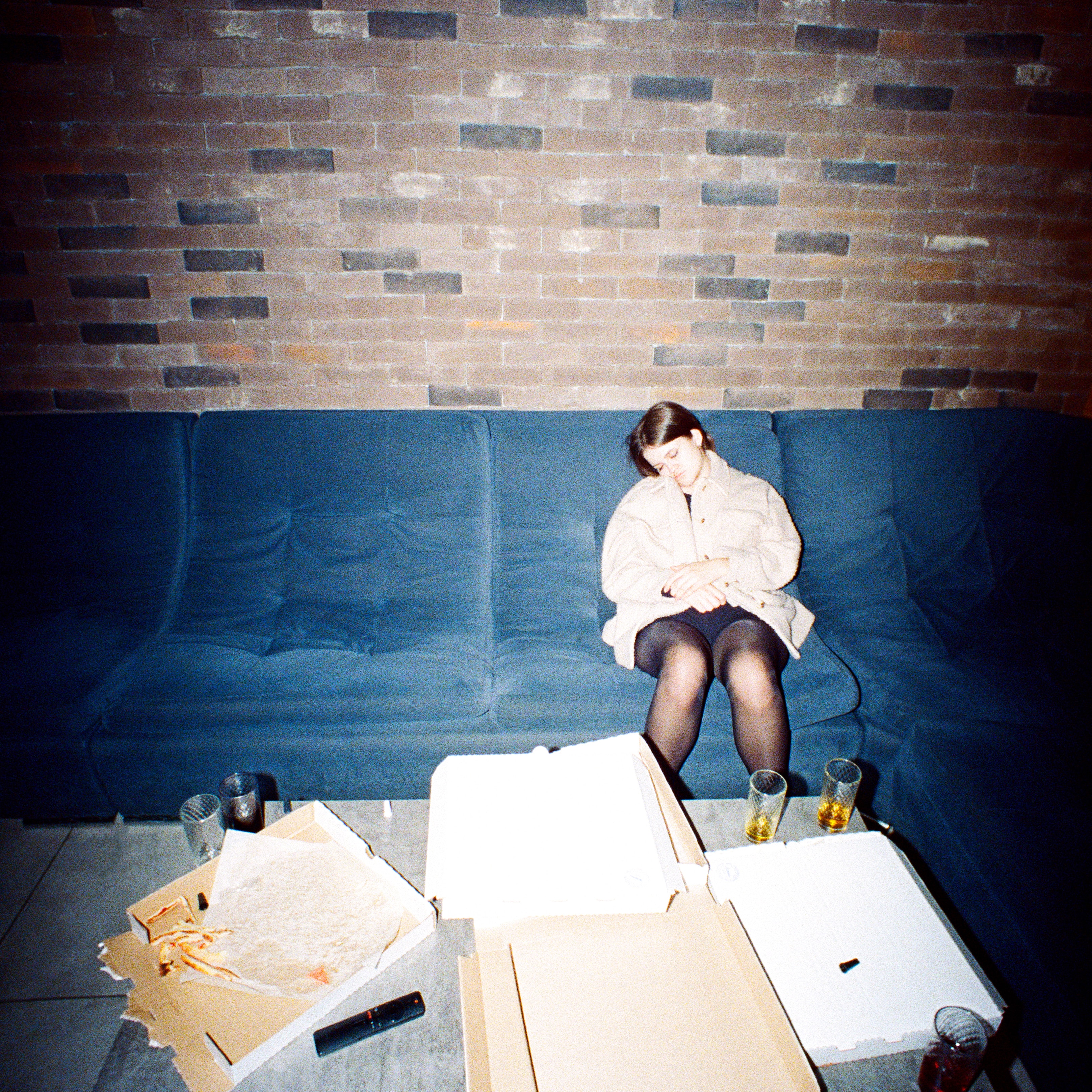
Seeking Professional Help for Sleep Issues
When it comes to addressing sleep problems, seeking professional guidance is a crucial step in ensuring the long-term health and well-being of individuals facing sleep-related challenges.
For those dealing with persistent sleep problems or complex issues, consulting a sleep specialist is a wise choice. Sleep specialists are healthcare professionals with expertise in diagnosing and treating various sleep disorders.
They can conduct in-depth assessments, order relevant tests, and develop tailored treatment plans to address the root causes of sleep issues.
Chronic Sleep Problems & Health Risks
Chronic sleep problems can have far-reaching health consequences. Prolonged sleep disruptions are linked to a heightened risk of various health conditions, including cardiovascular diseases, obesity, diabetes, and mental health disorders.
Over time, the accumulation of these risks can significantly impact one's overall health and quality of life. Therefore, addressing sleep problems is not merely about improving the quality of one's sleep but also about safeguarding long-term health.
For many individuals, healthcare providers serve as the first point of contact for addressing sleep concerns. When experiencing sleep-related issues, it's crucial to initiate a conversation with a healthcare provider who can provide initial guidance and refer you to a specialist if necessary.
Open and transparent communication about your sleep patterns, concerns, and goals is essential for effective evaluation and treatment.

Prioritizing Informed Choices for Restful Sleep and Well-Being
The combination of melatonin and alcohol introduces a complex interaction that can affect sleep quality.
While both substances may initially induce relaxation and drowsiness, their combined effects are unpredictable and can lead to excessive sedation, sleep disruption, and irregular sleep patterns. The risks of this combination underline the need for careful consideration and informed decision-making.
In conclusion, be smart. Don't mix alcohol and melatonin. You may find yourself drifting off to sleep quicker, but your sleep cycle will be more disrupted and you won't feel at rested the next day. When it comes to choosing melatonin products, the same applies: be smart. Verify the ingredients in your products, look for lab tests, and follow appropriate dosages.
Happy snoozing!



